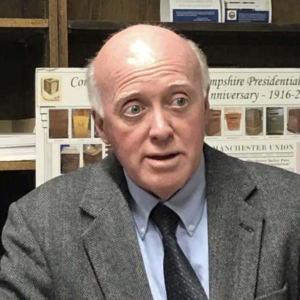The political press is full of stories about the impending demise of New Hampshire’s First In The Nation primary. Some of the biggest names in the Democratic Party have painted a target on the Granite State, particularly its longtime Secretary of State Bill Gardner.
“Interviews with more than a dozen Democratic leaders, DNC members and state party officials reveal that intense behind-the-scenes jockeying is already underway, with conversations ranging from reconfiguring the early state order to moving up Southern or Rust Belt states in the timeline,” Politico reports.
The national chairman of the Democratic Party, Tom Perez, says it’s time for a change. Former Senate Majority Leader Harry Reid of Nevada and South Carolina Congressman (and kingmaker) Jim Clyburn are so confident they’ll push New Hampshire out of the top spot, they’re joking about arm-wrestling for which state will go first.
Even prominent Democrats in New Hampshire are raising questions about whether Granite State is worthy of this important role. “New Hampshire has a very small population of Black, Indigenous and other people of color, is better off financially and is much older than the rest of the country,” former Democratic Executive Councilor Andru Volinsky wrote in an op-ed this week. “I would like to see New Hampshire maintain its FITN status, but there are strong contrary arguments.”
But if you ask Gardner if he’s worried about whether New Hampshire will still go first in 2024, he’s got two words for you: “Nancy Pelosi.”
Gardner, a Democrat, has been talking a lot lately about the future Speaker of the House’s visit to his office in 1983. The 1984 Democratic convention was going to be in her city of San Francisco, and the DNC elites had already decided: New Hampshire had to give up its spot.
“She came to my office and told me we had to move our primary, that the party had decided and we had no choice. I told her that as long as the people of New Hampshire wanted our state to go first and had a law on the books that said so, that’s what we were going to do,” Gardner told NHJournal on Thursday.
In a statement he posted on the Secretary of State’s office website earlier in the week, he referred to her visit as “the Pelosi presidential primary punch.” If so, it didn’t land. As she stormed out of his office, Pelosi turned to the then-35-year old Gardner and said: “You probably think you have a political career ahead of you. You will never win another election, because the people will have you and only you to blame when they have no delegates at the convention.”
Gardner, 72, still holds the office.
According to Gardner, when Pelosi left his office, she went to see then-Gov. John H. Sununu and demand he do something about Gardner’s intransigence. Sununu was not cooperative.
“I told her that New Hampshire was going to keep the First in the Nation primary no matter what, and whatever he had said to her, I stand with Bill Gardner,” Sununu said Thursday, recalling the encounter.
Her response, the two men said, was something along the lines of “What the heck kind of state is this, anyway?”
And how did Sununu feel about the encounter? “Made my day.”
Sununu believes the danger to the primary this cycle is very real, and he attributes it to the Democratic Party’s shift to the left. “I think the national party is going to demand full party loyalty on this legislation [H.R.1] from the New Hampshire delegation. I just hope our delegation can stand up for New Hampshire.”
Is Gardner worried? Is he concerned this may be the end of the line for the FITN? “Well, I’m always concerned about it. You have to be,” Gardner said.
Instead of expressing anxiety, Gardner had a message for Reid, Clyburn and the DNC: “We’re going to take care of ourselves because we can’t count on anyone else.”
As for the future of the primary, Gardner was also very direct.
“If and when we no longer have the First in the Nation primary, it will be because the people of New Hampshire decided it. As long as it’s the will of the people of New Hampshire, we will always be the ‘First in the Nation’ state.”
Andrew Mahaleris contributed to this report.



